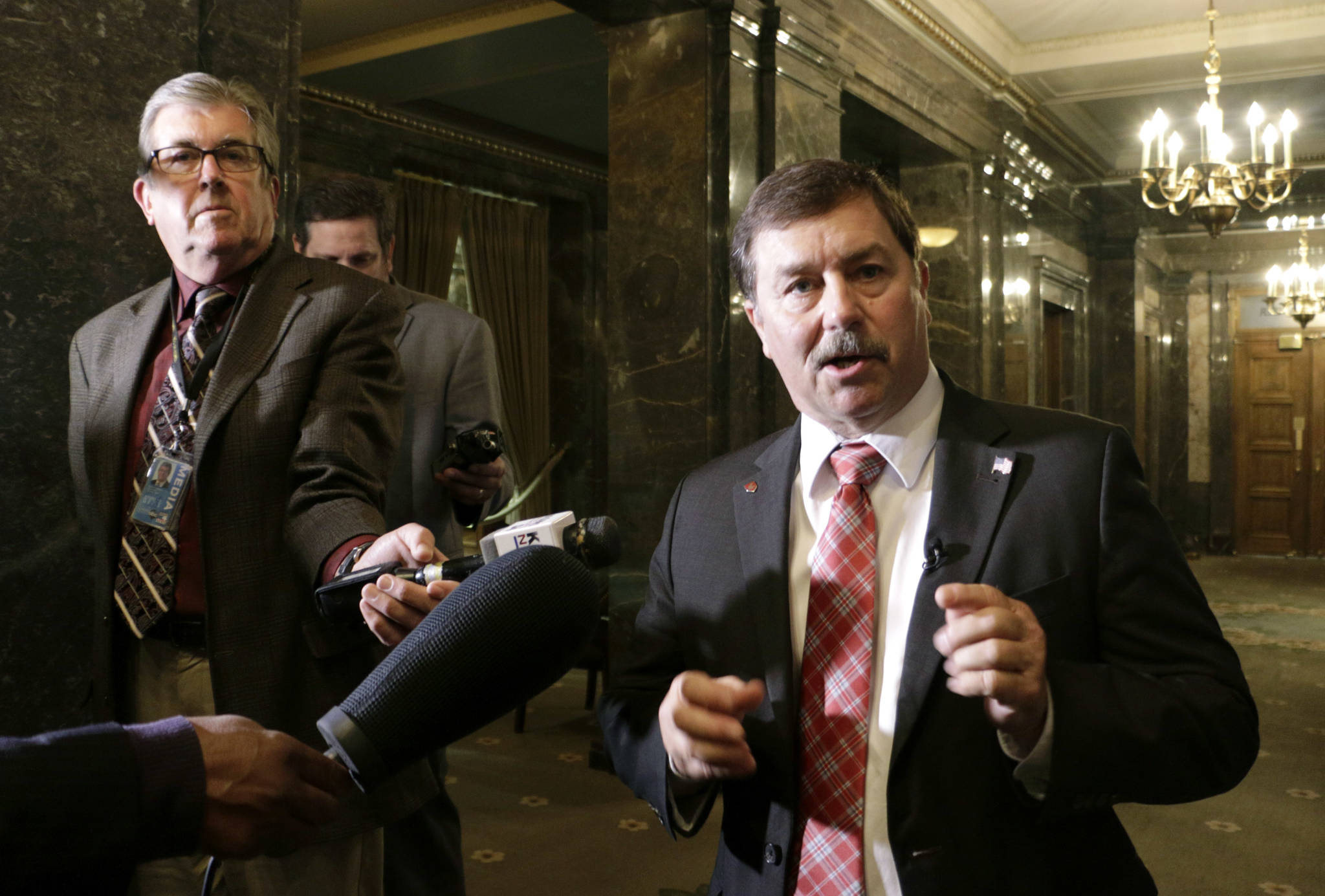By Rachel La Corte
The Associated Press
OLYMPIA — Gov. Jay Inslee announced Wednesday that state lawmakers have reached agreement “in principle” on a new two-year state operating budget, but legislative leaders won’t release any details until the four legislative caucuses are briefed on the plan.
With a deadline to avert a partial government shutdown looming, budget negotiators from both chambers met throughout the night. Inslee said legislative leaders were confident they would have a vote on the budget before the end of the day Friday. That would put them within hours of Friday’s midnight deadline for Inslee to sign the budget.
The rest of the Legislature was not expected to be briefed on details of the agreement until today, and the public will not see the information until after that happens.
“This is not an ideal situation,” said Democratic House Majority Leader Pat Sullivan. “I would have rather been here in April providing you with copies of the budget and having a little more time.
“But we’re here today in a situation where we absolutely do not want to shut down government.”
While Washington state has never had a partial government shutdown, the Legislature has taken its budget talks to the brink before, including in 2013 and 2015, with budgets not signed by the governor until June 30 both years.
But much more information on the budget process was provided those years, including a basic framework of the agreements when they were announced.
The last-minute agreement comes after the Democratic-controlled House and Republican-led Senate have struggled for months to find compromise on a budget that addresses a state Supreme Court mandate on education funding.
The state has been in contempt of court since 2014 for lack of progress on satisfying a 2012 high court ruling that found that school funding was not adequate.
Lawmakers have already put more than $2 billion toward the issue since the ruling, but the biggest piece remaining of the court order is figuring out how much the state must provide for teacher salaries.
School districts currently pay a big chunk of those salaries with local property-tax levies. Senate Republicans and House Democrats have disagreed on several areas, including whether new taxes are needed.
Lawmakers are in the midst of a third overtime session, after the regularly scheduled 105-day session ended in April without them being any closer to a deal.
“We took a very complicated path to get here this year,” Republican Senate Majority Leader Mark Schoesler said.
“That complicated path included a generational change in how we fund education in this state.”
In addition to the state operating budget, lawmakers still need to address the capital budget, which deals with projects across the state.
Legislative leaders acknowledged they might need additional time to finish work on that and other lingering bills.

